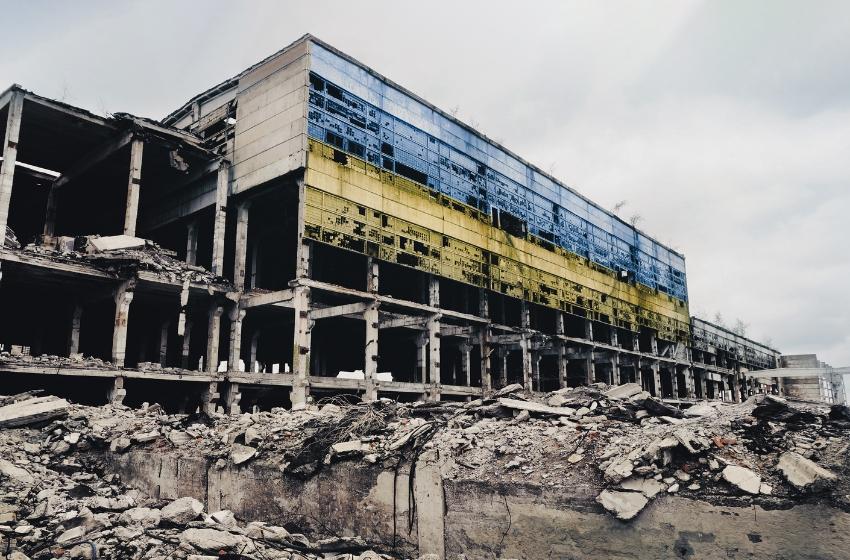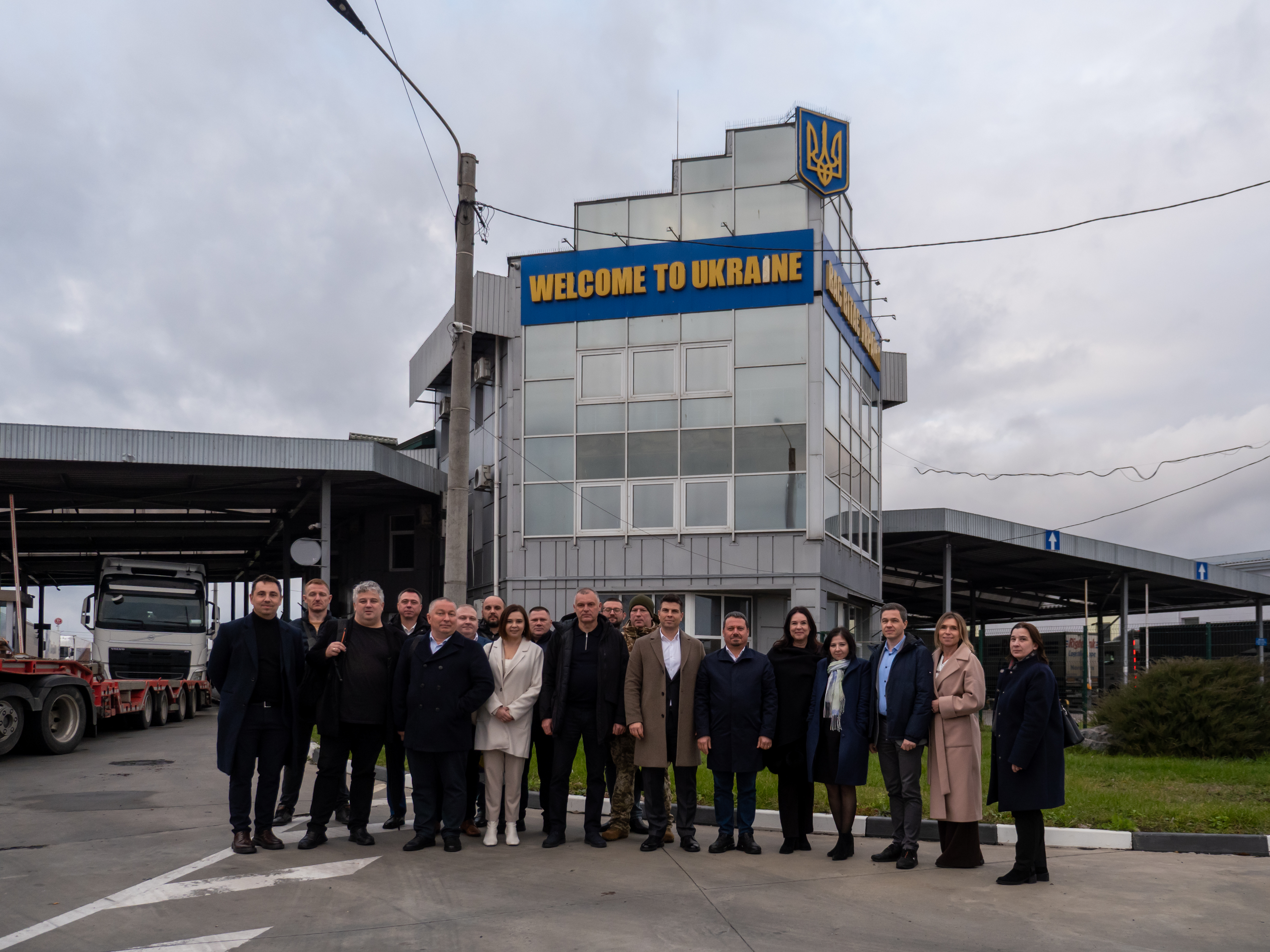Sociological group «Rating» by an order of the public organization «Transatlantic Dialogue Center» carried out a study «Reconstruction of Ukraine and international aid» on November 20-21, 2022.
According to the results of the survey, Ukrainians' views on when to begin the repair of damage in the de-occupied territories are somewhat diverse: 44% think it should be done as soon as possible, and 52% believe it is worth waiting for the war to end. Differences are observed within the regional distribution: residents of the Eastern regions are more likely to be in favor of reconstruction as soon as possible, while respondents from the Western and Central regions are more supportive of the idea of postponing it until the war ends.
- Restoration of jobs and income sources is more important for Ukrainians as direct financial support. Thus, among the programs most needed for war-affected communities, the most often chosen were the restoration of businesses and jobs (60%) and the damage repair (55%). Financial support was identified as an important program by 44%. 37% named medical and humanitarian assistance as important. Children's development programs and psychosocial care are significant for a quarter of the polled. Instead, programs for either democratic institution's development or cultural and social cohesion were chosen less often – by 3 to 6%.
- There are certain differences in the relevance of reconstruction programs within regional and age cut. Thus, for the residents of the East, the issues of returning to work and damage repair are more critical. Humanitarian assistance and support for children's development are more important for young people as compared to older people. Also, one-third of the younger population declared the need for a psychosocial care program. Moreover, displaced people more often than others record the need for reconstruction: those who have moved more often than others talk about the need for jobs restoration, damage repair, and the need for medical and humanitarian assistance.
- According to all respondents, communications and energy infrastructure (64%) are the main priority for recovery in conflict-affected communities. Reconstruction of social infrastructure (schools, hospitals) was most often chosen as the second priority (29%), somewhat less often - the restoration of private housing and communications (24% each), and transport infrastructure (17%).
- Opinions on the reconstruction strategy for the damaged infrastructure are diverse: 48% believe that the recovery should take place as soon as possible, while 49% stand for the recovery to last longer but include the introduction of green, energy-saving technologies and modernization. Among the polled from the Eastern regions, there are somewhat more of those who prefer quick recovery, but still among them, there are also about 40% who do not mind waiting for infrastructure modernization. Among the residents of the Center and West, there are somewhat more of those in favor of slower reconstruction but with modernization. There are also generational differences: while older people want to rebuild infrastructure as soon as possible, most young people want to modernize and advocate for introducing green energy.
- In general, most respondents positively perceive the participation of countries that do not commit aggression against Ukraine referring to the reconstruction. Thus, potential aid from Great Britain, the USA, Germany, and France is perceived very positively: 81-90% of respondents support the participation of these states in the reconstruction. Regarding Turkey, 67% share this opinion (22% are neutral, 10% are negative). As for China, 45% support such an initiative (a quarter are neutral and the same number are negative).
- Evaluating different scenarios of foreign countries' involvement in Ukraine's reconstruction, the majority (55%) advocate that foreign countries provide finances and supervise Ukrainian companies. The scenario in which foreign companies are directly involved in the reconstruction was supported by 29%. 13% supported the idea that foreign countries provide finances while Ukrainian companies carry out the reconstruction works on their own. Participation of foreign countries only at the consultation level was supported by only 2%. Among those who are positive towards the foreign countries’ involvement in Ukraine’s reconstruction, the support for the ideas of direct participation of foreigners or control on their part is more often observed.
- Since the beginning of the full-scale Russian invasion, the conviction that Ukraine's victory in the war is the liberation of all its territories, including Crimea and occupied Donbas, has increased (from 74% in March to 85% in November 2022). Only 9% chose the option of returning only the territories that Ukraine controlled until 24.02.22. At the same time, no more than 5% support the continuation of hostilities on the Russian territories. Support for the de-occupation of all territories of Ukraine without exception is absolute (more than 80%) among representatives of all regions of the country.
- The number of those who support the reinstatement of nuclear-weapon-state status for Ukraine has increased (from 47% in 2019 to 53% in 2022).
- Ukraine's accession to NATO (61%) and Russia's nuclear disarmament (50%) are measures to deter future attacks against Ukraine which are most often supported by respondents. Ukraine's accession to the EU and guarantees from Western countries to supply Ukraine with weapons are supported by 34% of respondents as measures of deterrence. Nuclear weapons of Ukraine and financial aid to our state were chosen by 17% each. Only 8% supported signing peace agreements with Russia to deter aggression. Residents of the East and South, as well as those who support the military recapture of only the territories controlled as of February 24, 2022, are somewhat more likely to believe in the effectiveness of signing peace agreements with Russia. At the same time, in all regional and age groups, an overwhelming majority chose Ukraine's accession to NATO and Russia's nuclear disarmament as the best security guarantees.
- The majority of the population of Ukraine has not heard anything about the initiative of French President Macron's «European Political Community». Only 3% know something about it, 29% have heard something about it. In general, 54% of all believe in the benefits of such a platform, and 63% of them are among those who have heard something about it. A quarter of Ukrainians believe such an initiative would not effectively counter Russian aggression.
- The vast majority of respondents (60%) consider Germany to be a friendly country towards Ukraine, about one-third consider it rather neutral. Only 1% consider Germany hostile in relation to our state. The attitude towards the involvement of Germany in the reconstruction is somewhat better as compared to the perception of it as an ally, because referring the issue of reconstruction, the positive attitude towards it is at the level of 85%.
- The main factors that influence the perception of Germany as a friendly country were the supply of arms to Ukraine and aid to Ukrainian refugees (over 50%). 38% noted that the factor that positively influenced their opinion of Germany was its financial aid to Ukraine. 14% rate Germany as friendly because they believe the German population supports Ukraine. Among other factors that influenced the positive assessment, only 7% of respondents identified the introduction of sanctions against Russia by Germany, 5% - the pro-Ukrainian stance of German politicians. 5% said they simply like this country.
- Instead, the main factor determining Ukrainians' perception of Germany as an unfriendly or neutral country is that German politicians have a pro-Russian stance (44% of those consider Germany neutral or hostile). The fact that Germany continues to cooperate with Russia (28%) and supplies insufficient weapons (27%) also play a significant role in this assessment. The polled spoke much less often about the insufficiency of financial aid, or German population support to Russia (9-10% each). 2-5% of respondents noted a lack of sympathy for Germany.
- Audience: the population of Ukraine aged 18 and older in all regions, except for the temporarily occupied territories of the Crimea and Donbas, as well as the territories where there was no Ukrainian mobile connection at the time of the survey.
- The results are weighted using the current data from the State Statistics Service of Ukraine.
- The sample is representative in terms of age, gender, and type of settlement.
- Sample population: 1000 respondents.
- Survey method: CATI (Computer Assisted Telephone Interviewing).
- Based on a random sample of mobile phone numbers.
- The margin of error of the study with the confidence interval of 0.95: does not exceed 3.1%.
- Dates of the survey: November 20-21, 2022.





















